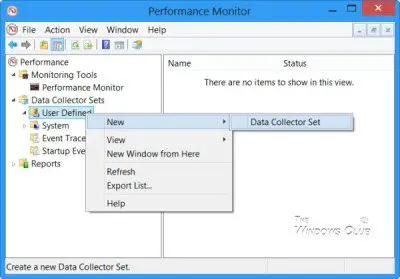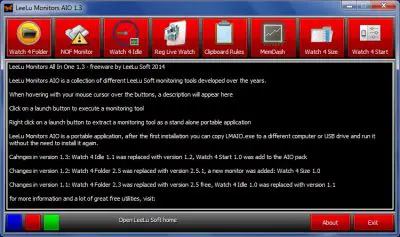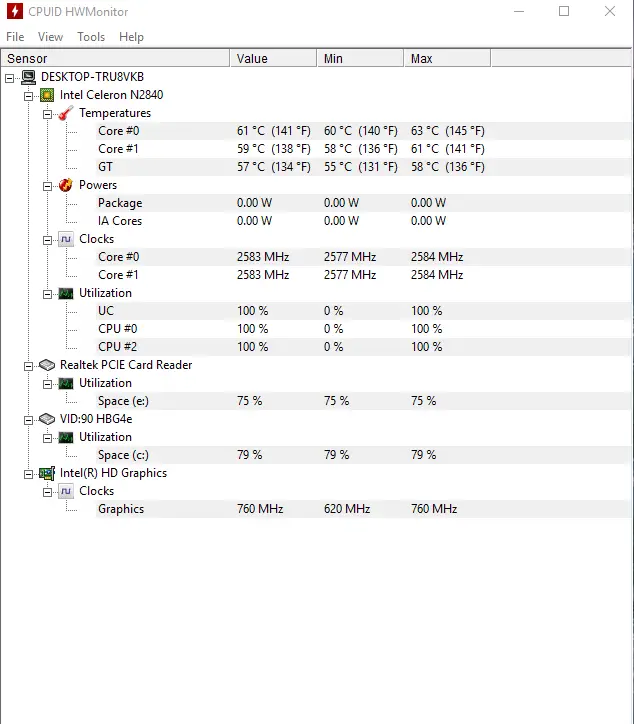However, high-end our Windows PC might be, it is common for Windows users to complain about the sluggishness of the system. While in some cases the sluggishness might be due to the low specced hardware, in most other cases it could be something else. Like other things, the Windows operating system needs to be taken care of and serviced regularly.
One can start by deleting the temporary files, defragment the disks, uninstall the unused programs and generally following these tips to improve Windows performance. But before doing all that one needs to understand the Achilles heel or simply the area wherein the PC is lacking grunt and act accordingly. We at Windows Club have painstakingly curated a bunch of system performance monitoring tools that will help monitor computing resources.
Software to monitor System Performance
While we can normally use the Windows Task Manager to monitor system performance and resources utilized, these tools offer a lot more.
1. Perfmon or Performance Monitor

Just like how charity begins at home so does our search for the ultimate tool. Perform is Windows inbuilt tool that lets you monitor the system performance on Windows 10/8/7. The tool can be opened by opening the WinX menu and typing perfmom.exe. Once the Performance monitor is open go to the left pane and right-click on the User Defined node and select New > Data Collector Set. Also one can give it its own name and also choose to run either the reliability monitor or the standalone performance monitor.
2. LeeLu Monitors AIO

In case you are not satisfied with the inbuilt Windows Perfmon tool, LeeLu Monitors AIO is your next bet. The monitoring tool is best to help you track folders, memory, and registry files on the system. The installation package contains the following utilities – Watch 4 Folder, NOF Monitor, Watch 4 Idle, Reg Live Watch, Clipboard Rules, and Memory Dash. The tool primarily offers the following features Watch 4 Folder, NOF Monitor, Watch 4 idle, Reg Live Watch, Clipboard Rules, and Memory Dash. LeeLu is mostly a tool that lets you check folders and issue warnings when the faulty activities exceed a certain number of times.
3. Wise System Monitor

Wise System Monitor is one of the best system monitoring tools around that sticks to bare basics and it offers users a simple way to monitor the memory usage, CPU usage and all the related processes running along with the hardware component info of your PC. This tool lets you know what’s consuming your computing resources and which part of the PC is overheating thus making way for a rather definitive approach to troubleshooting a performance issue.
The tool is made up of a Process monitor that helps you monitor and manage the processes of your system, a hardware monitor to display hardware information, a section dedicated to operating system listing and a handy floating window that shows download speed, upload speed, CPU usage and also the hardware temperature. You can get it here.
4. Performance Monitor by HexaGora

Performance Monitor is more like a widget and lets users see the relevant stats without actually digging through a pile of advanced settings. The program shows you the CPU, Memory, Disk and Network utilization and is made up of four fully configurable small graphs that can be stashed in the tray area. Also, the windows are fully anchorable. One can Right-click for options, drag a single panel to move it, and also drag a single panel with the CTRL key down in order to move all attached panels. Get it here.
Read: How to check Computer Health in Windows 11/10
5. HWMonitor

Most of the programs listed above will work well if you are regular user but what if you are a gamer and you need to know the stats of your gaming rig. Well, HWMonitor is just the right tool for you since it monitors the PC system’s primary health sensors. The program displays CPU temperature, voltage, power consumption, mainboard voltage, temperatures, fan speeds, GPU voltage, and many other related insights. You can download it here.
BONUS: Take a look at Moo0 System Monitor too.
Let us know if we missed your favorite tool.
Some of you might want to take a look at these tools too:
